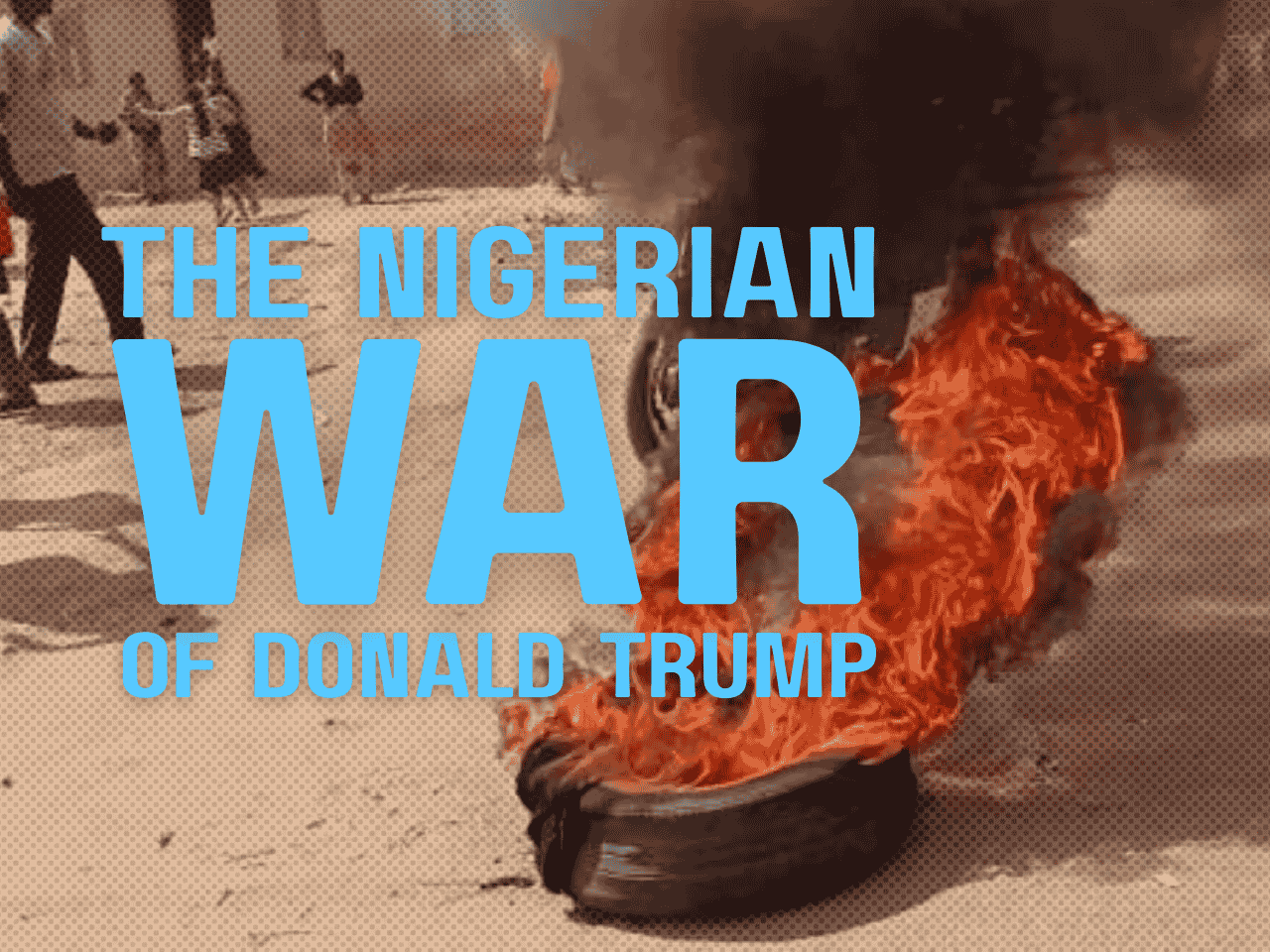Two weeks ago, Trump threatened to send troops to stop “the genocide” of Christians in Nigeria. His message, shared on social media — as he does with any foreign policy announcement — terrified Nigerians. For days, citizens of our populous West African country debated the implications of this threat. Could there really be an invasion? Like in Afghanistan, Iraq, or Libya?
Trump’s statement followed months of campaigns by US Republicans against the Nigerian government for allegedly “supporting the persecution of Christians.” US Senator Ted Cruz, one of the leading voices in the campaign, introduced a bill seeking to sanction the Nigerian government for supporting this “anti-Christian” genocide. US Congressman Riley Moore called Nigeria the “deadliest country in the world for Christians.” These and similar statements were echoed on evangelical platforms around the world, lending credence to a “Christian persecution” spectre often linked to a global ‘Muslim jihadi threat.’
A complex security crisis
However, these claims present an inaccurate picture of Nigeria’s complex security crisis. Armed groups operate across nearly every region of the country and are motivated by a range of factors rather than a single sectarian or religious cause. Nigeria faces a mix of historical grievances, ethnic tensions, economic disparities, and weak governance, alongside religious extremism. For instance, Boko Haram and other jihadist groups, which aim to eradicate “Western education and civilisation,” do identify with fundamentalist Islam, yet they have targeted both Christians and Muslims in the predominantly Muslim North East, while the North West struggles with armed banditry and non-religious terrorism.
Other regions are tormented by yet other forms of armed militancy. The North Central region, for example, experiences frequent clashes between Fulani cattle herders and farming communities. Violence in the South East is often linked to separatist agitation, and in the South South, similarly, to anti-government militancy. The overwhelming majority of members of these groups are driven more by profit, revenge, and survival than by religion or political ideology.
The US “Christian genocide” campaign has relied on a combination of reports from the Nigerian International Society for Civil Liberties and the Rule of Law (see inter alia here and here), which, taken together, allege that over 100,000 Christians have been killed and approximately 19,000 churches destroyed since 2009.
The BBC, however, reported that Intersociety’s methodology was “opaque” and that there was no clear breakdown of how deaths were counted by religion, region, or actor.
Most violent deaths happen in the overwhelmingly Muslim north
A very different picture of violence in Nigeria emerges from the globally operating Armed Conflict Location & Event Data Project (ACLED) for 2024. ACLED records indicate that 9,355 people lost their lives in violent conflict across the country that year. Further data from the same source, curated by Humangle, show that the overwhelming majority, 86 %, of these deaths occurred in the predominantly Muslim north, while fewer than a quarter of this number took place in the North East, where Islamist-fundamentalist groups such as Boko Haram and other jihadi organisations are known to target communities.
Armed bandits
The same figures further indicate that the North Central region accounts for just under one-fifth of northern conflict-related deaths. As noted above, the violence is largely driven by tensions between Fulani herders, who are predominantly Muslim, and primarily Christian farming communities. While this dynamic is sometimes framed as purely religious conflict, the underlying driver is competition over land and other scarce resources (1).
The largest part of violent conflict-related deaths — 41% of the 86% recorded for the North as a whole, according to ACLED — happened in the North West, where the killers are mostly armed bandits.
There have been incidents in which violent groups have targeted religious communities because of their faith, and Christians have indeed been victimised in some of these attacks. However, the ACLED figures on this issue are far lower than those claimed by Donald Trump and his allies’ sources. Quoted by the BBC in the aforementioned report, the organisation stated that, of the 21,000 civilian deaths from violence recorded between 2020 and September 2025, only 317 were linked to anti-Christian motivations. Meanwhile, Muslims have also been targeted: in August this year, an armed group attacked a mosque in Katsina State during morning prayers, killing around 30 worshippers.
Rather than representing a Christian genocide, the ongoing violence is a nightmare for nearly all Nigerians, having forced more than three million people to flee their homes.
The Nigerian government needs to address root causes
The framing of the security crisis as a religious war occurs because victims feel unprotected and neglected by the state, Malik Samuel, a conflict researcher with Good Governance Africa, told ZAM, adding that “inaction has been the main factor driving the narrative of Christian genocide in the country.” Other conflict-focused groups and analysts have similarly criticised the Nigerian government for its decades-long failure to address the widespread violence and its underlying causes, including poverty, corruption, and weak governance.
While Nigeria’s National Civil Society Council has called for the creation of an independent database to record incidents and statistics of terrorist and bandit attacks, categorised in detail by the gender, age, and religion of victims and affected families, with the stated aim of “clearing the narrative of genocide,” the best possible response, says Malik Samuel, is for the government to take decisive action to address the security crisis. “Nigerians need to see and feel that they are being protected.”
- This has, inter alia, been documented by a ZAM investigation.
Call to Action
Working towards a new relationship of equality between Africa and Europe, ZAM platforms African investigation, activism and creativity that challenges exploitation, white supremacy and the erosion of democratic rights. Donate here.


